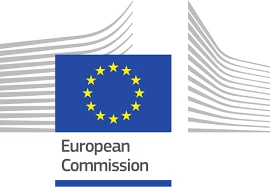Can EU Organic Farming Adapt? The Role Of Genomic Techniques In The EU

Recently, the article “New Genomic Techniques in Organic Production: Considerations for Science-Based, Effective, and Acceptable EU Regulation” was published in Cell Reports Sustainability, authored by a group of respected international academics. At first glance, the title seemed almost humorous—new genomic breeding techniques in organic farming, in the EU, of all places? Naturally, I had to read it. Below is a concise summary of the article, followed by my analysis and skepticism. This post is by no means unbiased; rather, it explores the question: Can organic agriculture evolve with science? Given that organic crop and food production has not adopted the scientific innovations that conventional plant breeding has is the past 40 years, is it likely it will now?
Motivation of the article
 The European Commission under the European Green Deal has set a goal of expanding EU organic farmland to 25% by 2030. As of 2022, organic farming accounted for 10.5% of agricultural land, up from 5.9% a decade earlier. So, how can organic production in the EU more than double that value in less than 10 years? Doubling that percentage in less than eight years presents a significant challenge. Organic farming generally yields 15%-20% less than conventional farming, making the expansion unlikely from a profitability standpoint.
The European Commission under the European Green Deal has set a goal of expanding EU organic farmland to 25% by 2030. As of 2022, organic farming accounted for 10.5% of agricultural land, up from 5.9% a decade earlier. So, how can organic production in the EU more than double that value in less than 10 years? Doubling that percentage in less than eight years presents a significant challenge. Organic farming generally yields 15%-20% less than conventional farming, making the expansion unlikely from a profitability standpoint.
A possible solution to bridge this gap could be new genomic techniques (NGTs), which are currently excluded from organic farming practices. Additionally, a 2021 EC study concluded that “EU GMO laws are no longer fit for purpose due to advances in plant breeding.” With pressure to increase organic land while maintaining sustainability and productivity, researchers are questioning whether organic agriculture can evolve to incorporate NGTs while still adhering to its foundational principles.
NGT or GMO
EU organic farming regulations, specifically (EU) 2018/848, exclude biotechnology, including genetically modified organisms (GMOs). However, the question remains: should GMOs include NGTs? Outside of the EU, these technologies are not always categorized as GMOs.
NGTs include methods such as mutagenesis and cis-/intragenesis, meaning genetic modifications occur solely within the same species or closely related species capable of sexual hybridization. While these techniques could fall under the GMO umbrella, they can also be classified as a form of self-hybridization. Because of this distinction, the authors advocate for a revised regulatory approach—one that integrates NGTs while preserving organic principles. It should be noted, however, that random mutagenesis under the current EU’s GMO directive is exempt from being classified as a GMO tool.
Key points from the article:
-
- Current EU Regulations: NGTs are categorized as GMOs under EU law, preventing their use in organic farming.
- Benefits of NGTs: These techniques can improve yield, enhance stress tolerance, increase plant disease resistance, and promote resource efficiency.
- Scientific Basis: Research shows NGTs can help organic farming bridge the yield gap without compromising sustainability.
- Regulatory Challenges: The current EU framework maintains a paradox where NGTs are accepted in conventional farming but banned in organic agriculture.
- Proposed Solutions: The authors suggest a science-based regulatory approach and participatory governance to ensure NGT acceptance among stakeholders.
Skepticism of this paper
While the authors present a compelling argument, their conclusions may not be entirely realistic, especially considering the EU’s strict stance on organic farming, conventional agriculture, and GMOs. To date, no nation has integrated NGTs into organic farming regulations. Given the EU’s stringent organic standards, changing either definition of GMOs or organic crops seems unlikely.
Mutagenesis was developed more than 100+ years ago, predating the term organic farming. Despite its long history, it is hard to prove that mutagenesis has or hasn’t been used in the past in organic plant breeding. I say this as, according to IFOAM Organics Europe, the EU’s organic farming was not regulated until the 90s, meaning that mutagenesis techniques prior to this time could have been used. As well, organic seeds are defined as being “produced from any plant variety, as long as it is not a GMO”. So it seems to me that mutagenesis is already being used by some organic plant breeders. It’s a bit puzzling that the EU organic sector would accept random, untargeted mutagenesis technologies, but reject advances in these technologies that enable targeted, controlled mutation.
Whether mutagenesis is a part of organic past or not, it still does not change my skepticism, and that is because current organic consumers do not support the idea of mutagenesis or other NGT innovations. Moreover, altering the EU’s organic framework to accommodate NGTs would require either option (A) a science-driven regulatory shift that overrides public perception, or (B) a dramatic change in public opinion regarding biotechnology in organic agriculture. Neither scenario seems likely in my opinion. And if the focus of policy is not science-driven but by consumer views, how will this impact the organic producers’ variety options in the future? If the public rejects the inclusion of NGTs and writing mutagenic into organic farming regulations, does that mean it is excluded in the future from being used?
What’s the future of EU organics?
The article presented emphasizes that organic farming must evolve to stay viable within Europe’s sustainability goals and suggests that incorporating NGTs could be a step in that direction. While this is a valid point, it also requires a significant shift in longstanding values and how the EU’s policy directives are made. Perhaps the integrity of organic crop genetics is more important to EU policymakers than expanding organic production through genomic techniques. That is not to say it is not the same in Canada, but I would say our organic industry often looks the European system to see what these leaders of the industry are approving or not.
For a moment, let’s imagine that these authors’ plea to EU policymakers is heard and accepted. Think of a scenario where precision breeding could modify specific genomic traits to enhance yield, improve drought tolerance, or deter pests. If targeted mutagenesis or cis-/intragenesis, were used to refine crop varieties, organic farming could grow without compromising the other core production principles of organics. This could represent a win for science, organic consumers, and agricultural producers alike. A dream I do not think I will live to see.
Instead, I am worried the glass is half empty, and that this backfires. What if this creates awareness and skepticism in the use of breeding tools like mutagenesis to not be allowed in organics? Hopefully, this is not the fate of the future of European organics, but only time will tell if it will be allowed to grow with innovations or will revert back into ideas of yesteryear.




